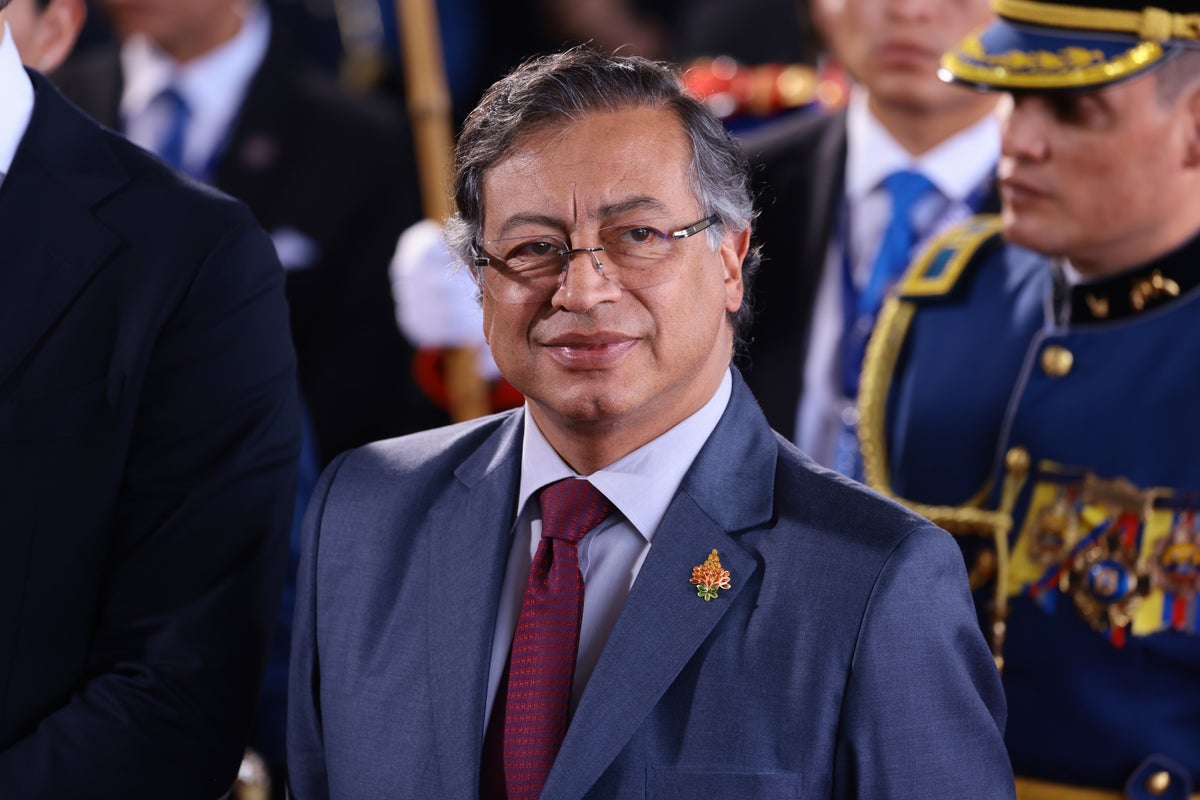
Colombian President Gustavo Petro has rebuked Donald Trump and his administration over their strikes on alleged drug boats in the Caribbean, saying they amounted to “murder” and are being carried out “only for television.”
The U.S. has sunk at least three vessels in recent weeks, killing no fewer than 17 people, and justified itself by claiming those on board were Venezuelan narcotics traffickers, without providing evidence to support its actions amid an uproar over their possible illegality.
While Vice President JD Vance said earlier this month he did not “give a s***” whether the strikes amounted to war crimes, Petro was in no doubt about the seriousness of the administration’s conduct.
“It’s murder,” he <a rel="nofollow" target="_blank" href="https://www.washingtonpost.com/world/2025/09/23/told The Washington Post in an interview published Tuesday. “Because they don’t have weapons, because they don’t have the capacity, and because that’s not how you stop drug trafficking.”
Petro argued that firing on drug-runners at sea meant that the U.S. was going after the wrong targets, picking off lowly mules rather than the criminal bosses responsible for driving the illegal drugs trade, whom he identified as primarily Mexican and European cartel leaders, not the Venezuelan gangs Tren de Aragua and Cartel de los Soles, labelled terrorist organizations by the Trump administration.
Trafficking networks can only be broken up by local law enforcement investigations and intelligence, the president argued, not military force, adding that Washington too often overlooks the role North American demand for cocaine plays in creating supply chains in South America.
Petro further complained that he had not been forewarned or briefed about the strikes, despite their occurrence close to Colombia’s northern border with the Caribbean. He warned that a lack of respect for territorial boundaries could be dangerous.
“If they start on one side, they could do it on the other,” he said. “It seems to depend on political friendship between the governments.”
The White House has insisted that the administration’s actions are “fully consistent with the law of armed conflict” and that Trump “is prepared to use every element of American power to stop drugs from flooding into our country and to bring those responsible to justice.”
Secretary of State Marco Rubio claimed after the first fatal strike that it had been necessary because the boat in question posed an “immediate threat to the United States.”
His State Department has since hit back at Petro by telling the Post in a statement that coca cultivation and cocaine production had surged under the Colombian’s leadership, adding that his “failed attempts to seek accommodations with narco-terrorist groups only exacerbated the crisis.”
The U.S. has also moved recently to decertify Colombia as a partner in its anti-drug crusade, saying Bogota had “failed demonstrably to meet its drug control obligations.”
While the country remains the world’s largest producer of cocaine, Petro insisted that going after impoverished farmers forced to grow coca to make ends meet is not a practical approach to tackling the problem and took the U.S. to task over its long-running “war on drugs”.
“For several decades now, the strategy has been completely wrong,” he said.
Petro is not the only South American leader to speak out over the boat strikes. After Trump claimed the alleged traffickers were “operating under the control of Nicolas Maduro,” also without evidence, the Venezuelan president condemned the U.S. and urged it to engage in dialogue with his country rather than resorting to violence.
